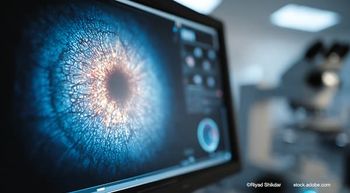
Acupuncture may help treat amblyopia
A study from the Archives of Ophthalmology has shown that acupuncture may be as effective as using an eye patch to treat anisometropic amblyopia.
A study from the Archives of Ophthalmology has shown that acupuncture may be as effective as using an eye patch to treat anisometropic amblyopia.
The randomized, controlled study of 88 children aged between 7 and 12 years revealed that using acupuncture was statistically superior to patching. Half of the patients received five sessions of acupuncture weekly and the other half received two hours of patching a day. They also received regular optical correction and one hour of near-vision activity daily.
The results demonstrated that the mean best spectacle-corrected visual acuity (BSCVA) improved by 1.83 and 2.27 in the patching and acupuncture groups respectively. The mean difference in BSCVA between the groups was 0.049 logMAR. With patching, BSCVA had improved by two lines or more in 28 eyes (66.7%) compared with 31 eyes (75.6%) in the acupuncture groups. Amblyopia was treated in seven eyes in the patching group and 17 in the acupuncture group.
To conclude, acupuncture is effective as a potential alternative treatment to occlusion therapy, and is being studied further to evaluate its value as a treatment for amblyopia.
Newsletter
Get the essential updates shaping the future of pharma manufacturing and compliance—subscribe today to Pharmaceutical Technology and never miss a breakthrough.




























